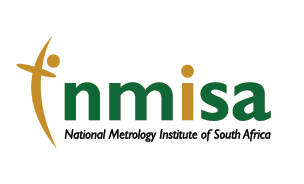The International System of Units (SI) defines the system of measurement globally and for a country to be connected to the International Measurement System, it must adhere to and apply the SI. The 7 base units of the SI (kilogram, metre, kelvin, ampere, candela, mole and second) each has a definition of how to realise the unit in a primary way and thus to establish a National Measurement Standard directly traceable to the SI. The International General Conference on Weights and Measures (CGPM) has approved a plan to redefine four of the seven base units (kilogram, kelvin, ampere, mole) of the SI in terms of fixed values of natural constants. The initiative would make possible new worldwide levels of consistency and accuracy, simplify and normalise the unit definitions, and liberate the system from dependence on the International Prototype Kilogram (the IPK) as the unit for mass.
The revised formal definitions of the SI base units are expected to come into force on May 20, 2019. The International definition of the kilogram has not changed since 1889. The kilogram (unit of mass) is defined as the mass of a Pt-Ir alloy cylinder (the IPK) that is kept at the BIPM in Paris. When a country signs the Metre Convention and becomes a member of the BIPM, it procures a copy of the IPK. All mass measurements done under the SI are traceable through the copy to the IPK. The revised definition of the kilogram will be in terms of Planck’s constant. Two approaches have been adopted to obtain this value, one is to use an electro-mechanical device called a Kibble (Watt) balance, and the other is to derive the constant from Avogadro’s number, by counting the number of silicon atoms in a silicon sphere. NMISA is developing both technologies as the Avogadro project will also provide a primary standard for amount of substance (mole). For the Kibble (Watt) balance, a collaboration has been entered into with the National Research Laboratory (NPL) of the UK to fast-track the development of working Kibble (Watt) balance at NMISA by end of the financial year 2020/21. For the Avogadro, NMISA is collaborating with PTB of Germany, INRIM of Italy and DEFNAT of Tunisia.
Three other units are also redefined at the same time with their realisations being modernised, the ampere, kelvin and mole. NMISA will also update its realisation of the ampere and kelvin with a primary gas thermometer (developed with NMIJ of Japan) and the determination of the electron charge (developed with UCT, NPL and NIST). The maintenance and dissemination part of the programme entails the continued maintenance of the systems for the realisation of the base units, and the proper dissemination to the Region and Nationally. The programme thus is the fundamental, technical basis of most capabilities of NMISA.
